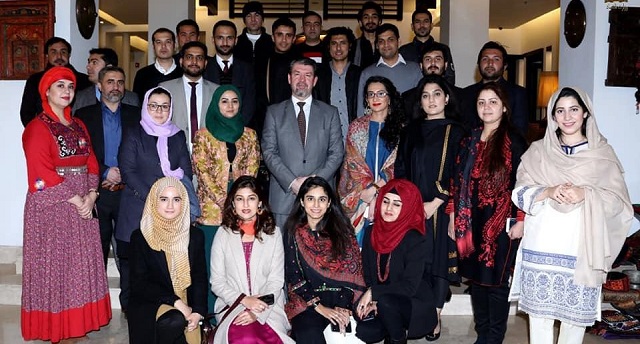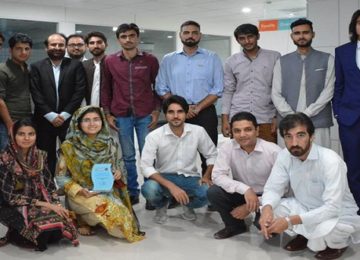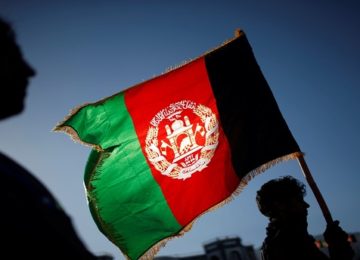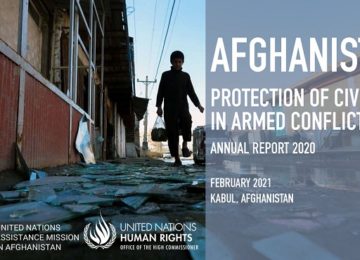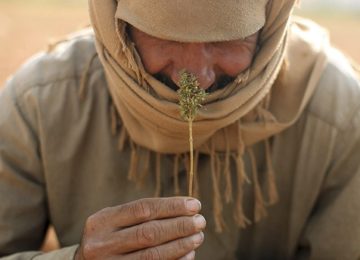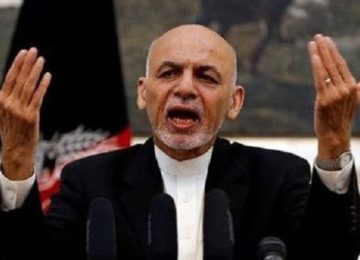January 31, 2020
As part of its efforts to improve people to people contact and promote positive and constructive narratives between Pakistan and Afghanistan under its Track 1.5/II project “Beyond Boundaries”, the Center for Research and Security Studies (CRSS) and its sister organization – Afghan Studies Center (ASC), in partnership with its Afghan counterpart – Organization for Economic Studies and Peace (OESP), organized the second Pak-Afghan Youth Leaders Summit on January 25, 2020, at Serena Hotel, Kabul. The first summit had been held in Islamabad on November 23, 2019. It focused on the theme “Connecting Youth Beyond Boundaries for a Better Tomorrow”, bringing together 35 youth leaders from both countries belonging to the fields of social development, private and government sectors, media, art, music and film-making. 14 youth leaders belonging to Islamabad, Peshawar, Mohmand, Kohat and Lahore participated from Pakistan while 21 participated from mainly Kabul in Afghanistan. The list and profiles of the Afghan and Pakistani youth leaders are attached in the tab below.
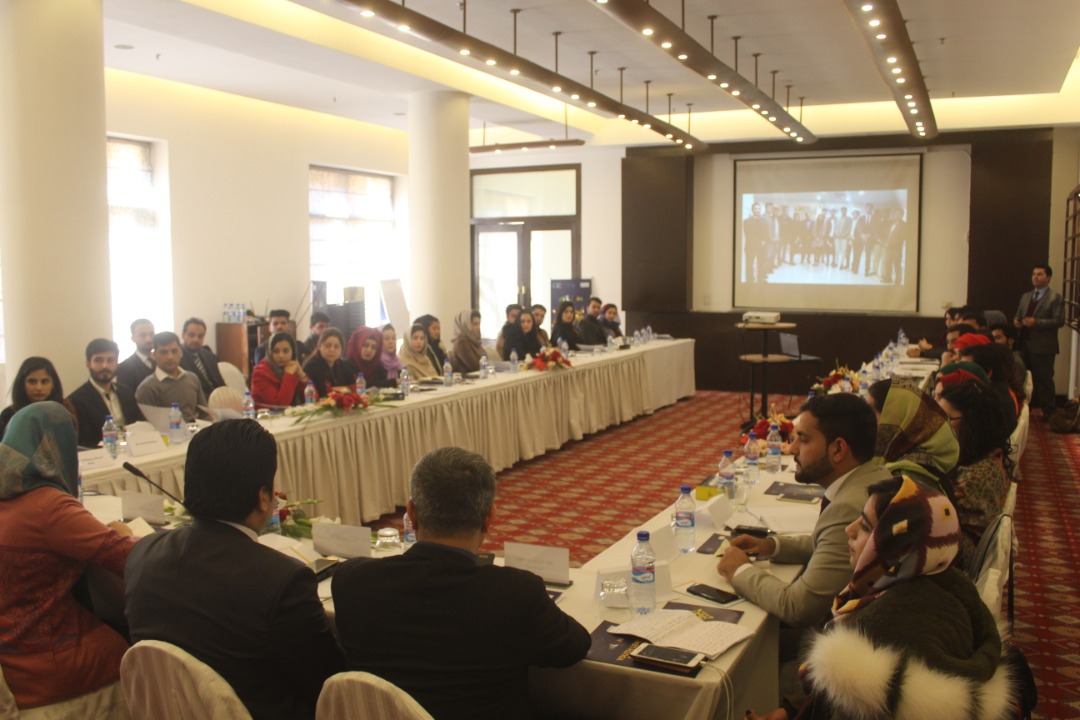
The summit began with an inaugural session followed by three interactive sessions. The first session focused on the theme “Mainstreaming Education, Gender & Refugees” with sub themes as 1) Mainstreaming Education to Ensure Peace, 2) Mainstreaming Gender Equality and 3) The Present and Future of Afghan Refugees. The second session focused on the theme “Economic Opportunities, Trade, Media & Creative Arts” with sub themes as 1) Connecting through Economic Opportunities & Trade, 2) Fusion of Arts & Culture to Promote peace and 3) The Role of Media in Improving Pak-Afghan Relations. Both the first and second sessions were followed by an interactive question and answer session.
The third and final session divided the 35 youth leaders into 4 groups to brainstorm and devise tangible joint policy recommendations on four working areas, such as 1) Education, Vocational Training & Gender, 2) Trade, Economic Connectivity and Employment, 3) Media, Creative Arts, and Cultural Exchanges and 4) Peace-building, Refugees, Minorities & Environment. The recommendations were then presented by a group leader from each group to the house.
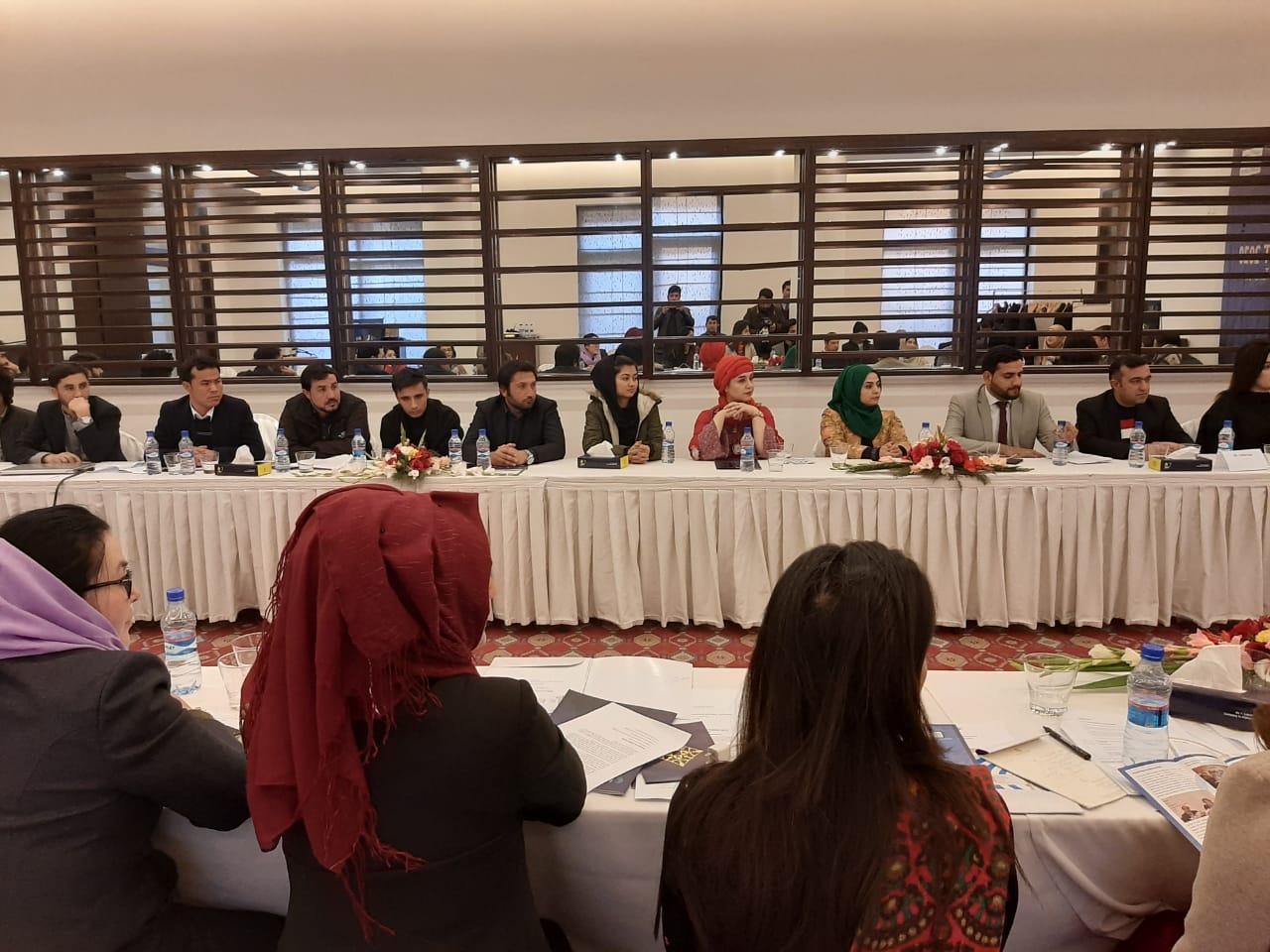
The Pakistani speakers for the first session on the theme “Mainstreaming Education, Gender & Refugees” were Mr. Danyal Hayat, Manager Industrial Linkages at ORIC CECOS University, Peshawar; Ms. Wardah Iftikhar, Consultant at UNICEF, Islamabad; and Mr. Shahaan Ahmed Shah, Lecturer at Balochistan University of Information, Technology, Engineering and Management Sciences (BUITEMS) and filmmaker based in Quetta, while the Afghan speakers were Ms. Shabnam Sarwari, civil society activist and education adviser, Ms. Lima Anwari, Legal Specialist, TOLONews, and Mr. Hizbullah Baryal, Executive Assistant to United Nations – International Labor Organization (ILO) for Afghanistan. The Pakistani speakers for the second session were Mr. Haroon Afridi, Young Parliamentary Associate at Khyber Pakhtunkhwa Assembly in Peshawar; Mr. Ubaid Ullah Khan, a musician and student of International Relations at Quaid-I-Azam University, Islamabad, and Ms. Madeeha Raza; an independent filmmaker, while the Afghan speakers were Mr. Imamuddin Hamdard, program coordinator with Friedrich Ebert Stfitung (FES); Ms. Fariha Easar, lawyer and human rights defender, and Ms. Ahadia Athar, civil society activist and program manager at Social Safety and Social Protection Organization.
The chief guests and keynote speakers of the summit were the Deputy Governor of Kabul, H.E. Hanifa Girowal, and Minister of Economy of Afghanistan, H.E. Mustafa Mastoor, while other guest speakers included the spokesperson for the Ministry of Information and Culture, Mr. Sabir Momand, and Minister for Trade at the Embassy of Kabul, Dr. Muhammad Yousuf Khan. The chairperson for all three sessions was Mr. Shoaib Rahimi, who is the adviser to the Minister of Mines, University lecturer, a youth activist and also President of Chevening Alumni.
In the inaugural session, CRSS Project Manager, Ms. Sitwat Waqar Bokhari, welcomed both the delegations and briefed them on the activities undertaken by CRSS under “Beyond Boundaries” since October 2015, and with OESP, since September 2017. She stated that the need to provide a platform for the youth of both countries to interact, exchange ideas in a constructive manner, debate on political and non-political issues to reach resolutions, and become peace ambassadors and youth leaders, arose from the recommendations of the Pakistan-Afghanistan Joint Committee members in Beyond Boundaries’ ongoing meetings, for which CRSS established its sister organization – Afghan Studies Center – in April 2017. The Center primarily focuses on activities to engage the youth from both countries. Ms. Bokhari then invited the honorable chief guest to address the youth leaders.
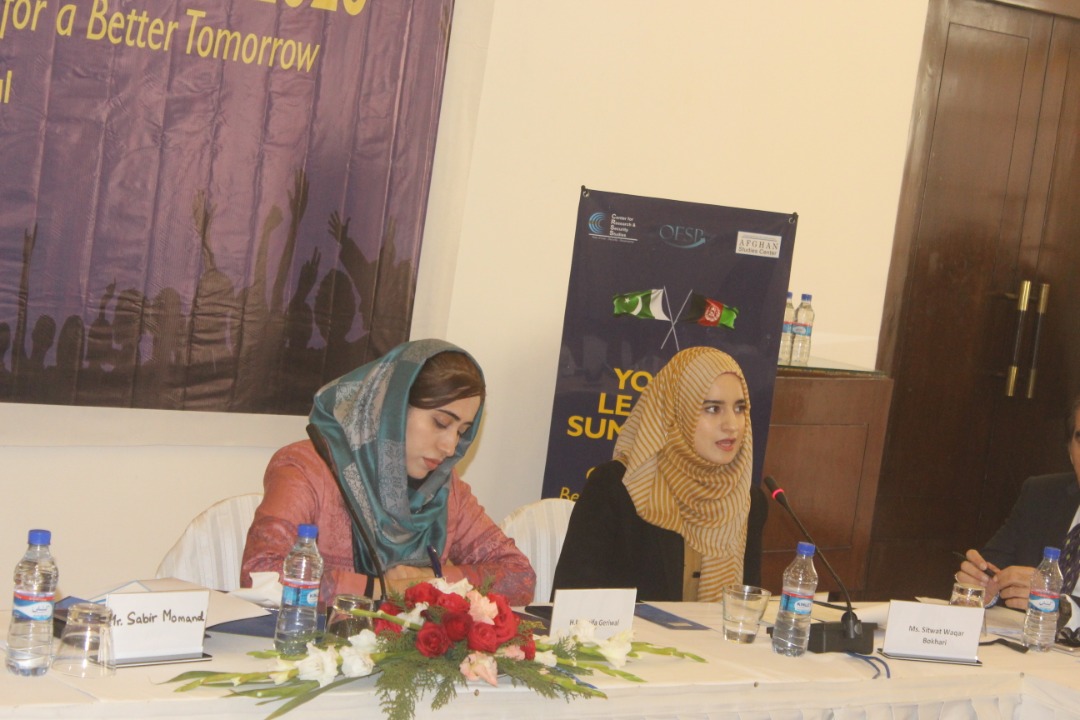
In her welcome remarks, the Deputy Governor of Kabul, H.E., Hanifa Girowal, stated, “I am very glad that today I am here with the youth of our neighbor and friendly country, Pakistan. I am proud and happy that the youth in Pakistan are interested to come to Afghanistan and observe the situation directly, see the developments in the last few years in Afghanistan, and also the steps which have been taken for the betterment of the conditions of women, youth and overall in the society. I want to thank our Afghan friends who have provided the opportunity to the Pakistani youth to come here and exchange their ideas and experiences with our youth.”
“Today I want to talk about the developments of such cooperation between the two countries as well as about the role of youth in the society. Afghanistan and Pakistan have an old relationship and both countries have been friends. Pakistan has been a country that has in various ways always cooperated with the people of Afghanistan and we have remained good partners. Today, we are in a serious and important phase of history. Afghanistan is at a stage of transition from war to peace where Pakistan definitely plays a very important role as Pakistan is a good provider of peace talks between the Taliban and Afghanistan,” she said.
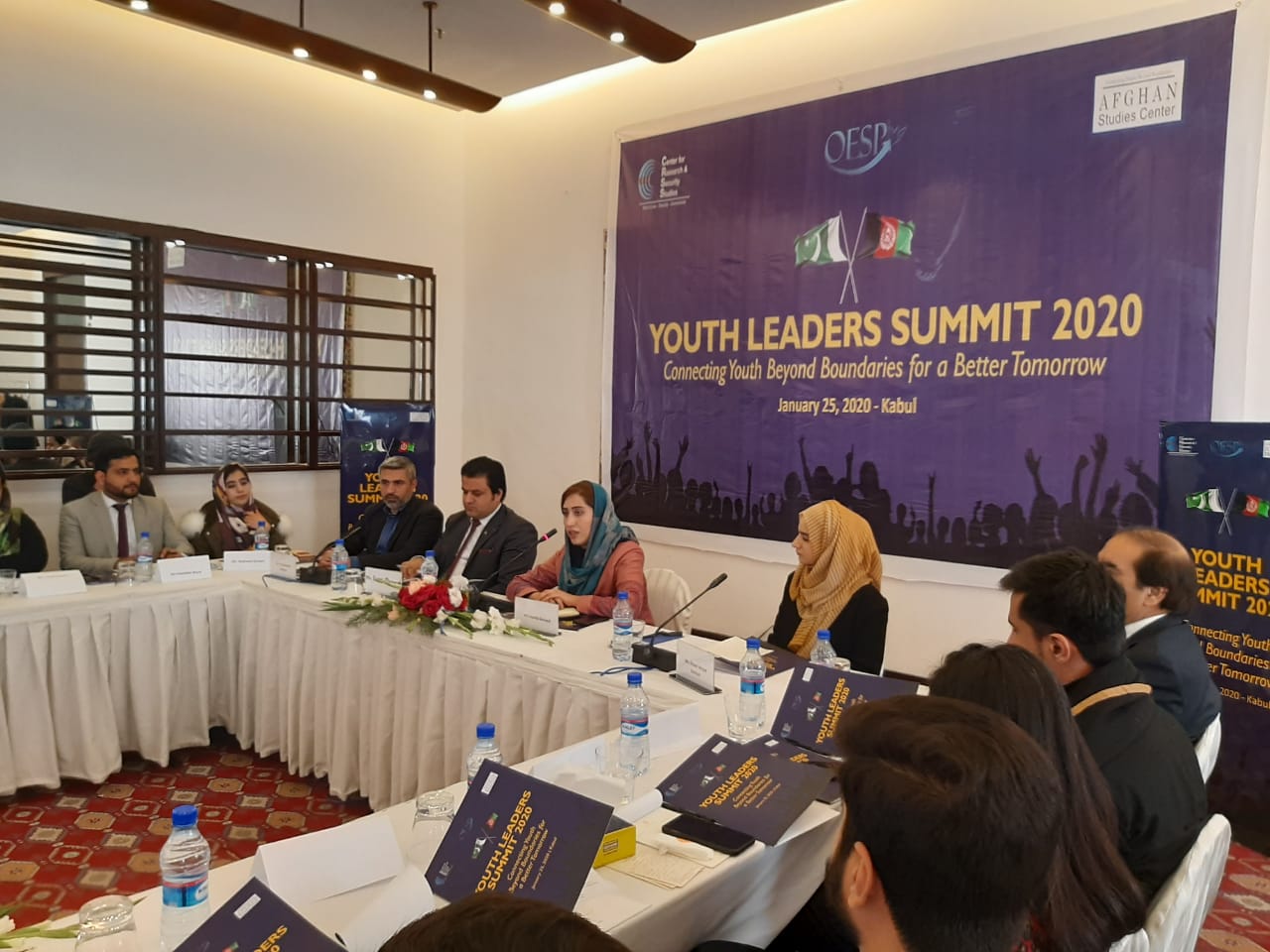
The deputy governor went on to say, “Our foreign relations have had ups and downs over the years. However, our cultural relations have played a significant role between the two countries. The relationship of the people of the two countries has been very important because even if we have had our political issues, the culture of the two countries has helped us a lot in building friendly relations.”
The deputy governor stated that she was hopeful that the Pakistani youth who was present at the summit would be able to show a positive image of Afghanistan in Pakistan as well as outside Pakistan upon their return. “My request from the Afghan youth is that they should try to build good relations because, in an interdependent world, no one is able to live alone and we always need the cooperation and help of each other,” she said.
“Having a good neighbor is very important and we should try to build and boost good relations; there are some facts that we can’t deny and that is that the Afghan youth have always been studying in Pakistan; they have come back and are serving people. We see that they have been cooperating in technology as well as in culture and sports, such as cricket. Besides all, Pakistan and Afghanistan have many similarities, such as language. There are many opportunities for the youth in order to work for the development of our country, in building good relations and playing an important role in global world, and this is an opportunity that should not be lost,” she said.

“We have many opportunities and one is today that we come together and exchanged our ideas and experiences. I am so happy that our Pakistani friends have come here. I am thankful to all of you and thanks to CRSS for organizing this event where we can gather and exchange our ideas. I had a meeting with a group of all-women Pakistani delegation just one month ago. I am inspired the way Pakistan is working for the development and growth of the youth and we have the same agendas in this regard. Once again thanks to both countries. Here we are to support this program as well as in the future. We will have this program in Kabul and also in other provinces like Herat, Mazar, and we have some places in Kabul. In the coming events, we will provide sightseeing visits for visiting youth in the districts of Kabul such as Paghman that should be visited and, hopefully, we will arrange it for the next program,” she offered.
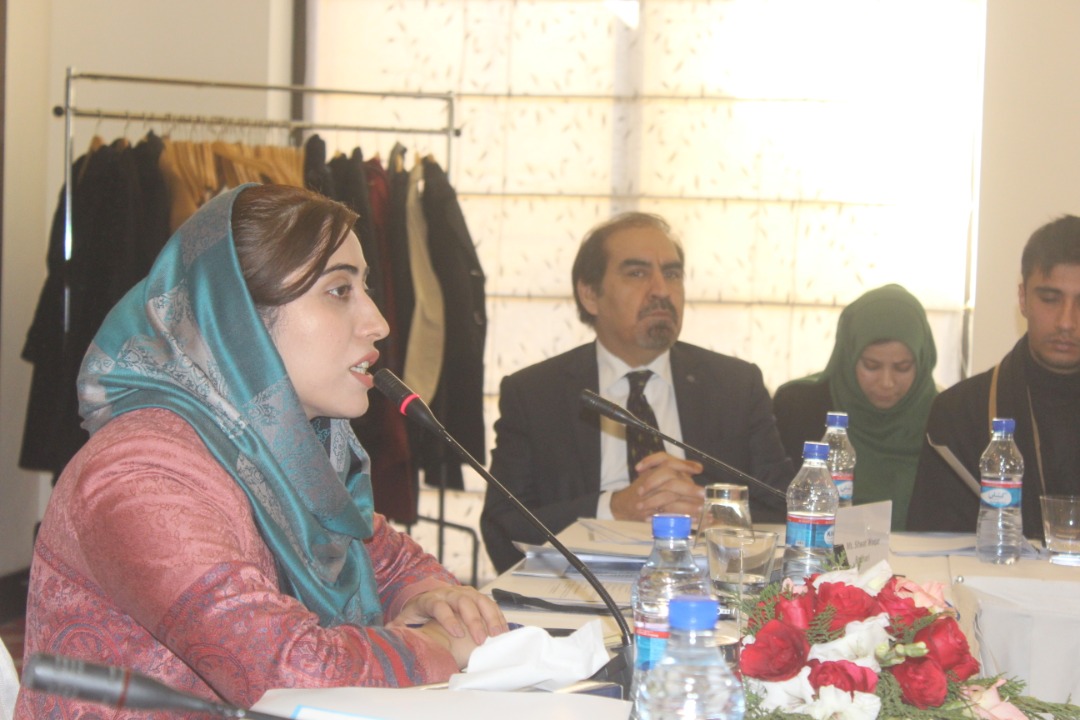
Spokesperson for the Ministry of Information and Culture, Mr. Sabir Momand, who was also a keynote speaker in the inaugural session, thanked and extended his warm welcome to the CRSS and ASC members. He stated that, due to the strategic location of Afghanistan, the country has remained the epicenter of regional connectivity for thousands of years. He raised two important points where Afghanistan has been engaged in with the regional countries in general and with Pakistan, in particular. The first one, he said, was trade, which, unfortunately, has been decreased in recent years. The second is the cultural contacts between the two, which, he said, had fortunately flourished.
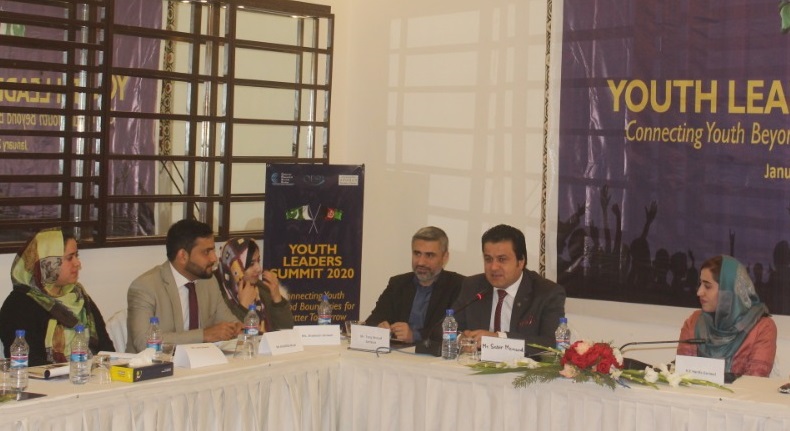
“The only way left with us now to restore those cultural contacts and bilateral trade is the arrangement of such people to people contact as today. Historically, cultural contacts have not been affected by politics. We, as a sovereign state, want to have good relations with all our neighboring and regional states. Afghanistan’s cultural ministry is ready to facilitate, and has facilitated before, any initiative to restore the cultural contacts. But it is not enough. If these are done directly and permanently by the two governments through such sessions as today, it would be more beneficial and meaningful. The youth of both countries can put pressure on their governments in this regard for a better tomorrow,” he said, concluding on the note that he would ask the officials of the Ministry of Culture and Information to strengthen the cultural ties between the two countries.
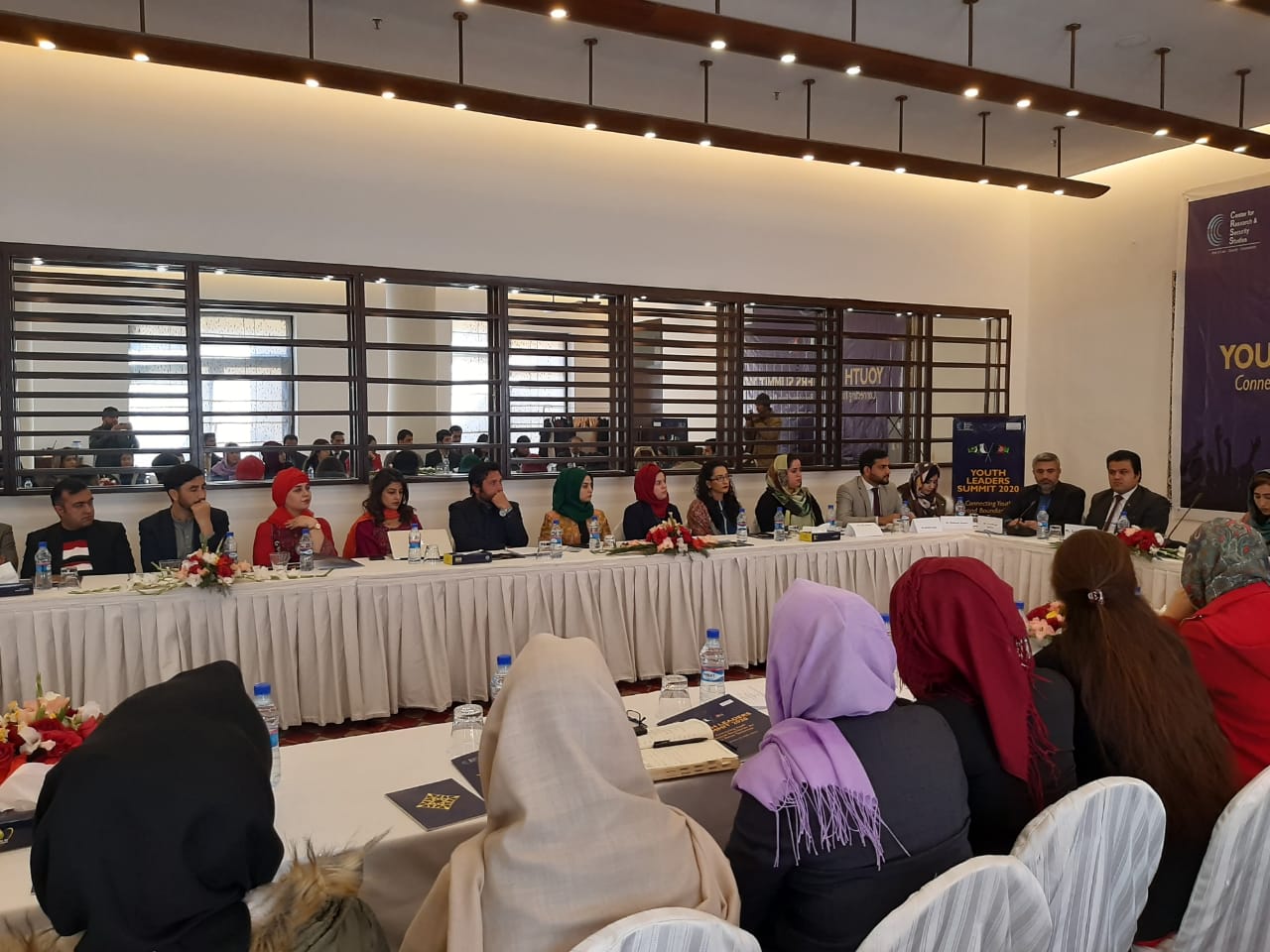
Mr. Tariq Sarfaraz, the Project Coordinator from the Organization of Economic Studies and Peace (OESP) warmly welcomed the participants from both countries and commended the spirit of the Pakistani delegation to have come to Afghanistan, joking that even the Afghan refugees do not want to return there. He further briefed the participants on how the sessions will be conducted and stated that the recommendations from these sessions, at the end, would be shared with the embassy as well the as the governments of both countries to mitigate the negative perceptions and to project the spirit of the youth in resolving the bilateral tensions and moving past the historical baggage towards peace and development.
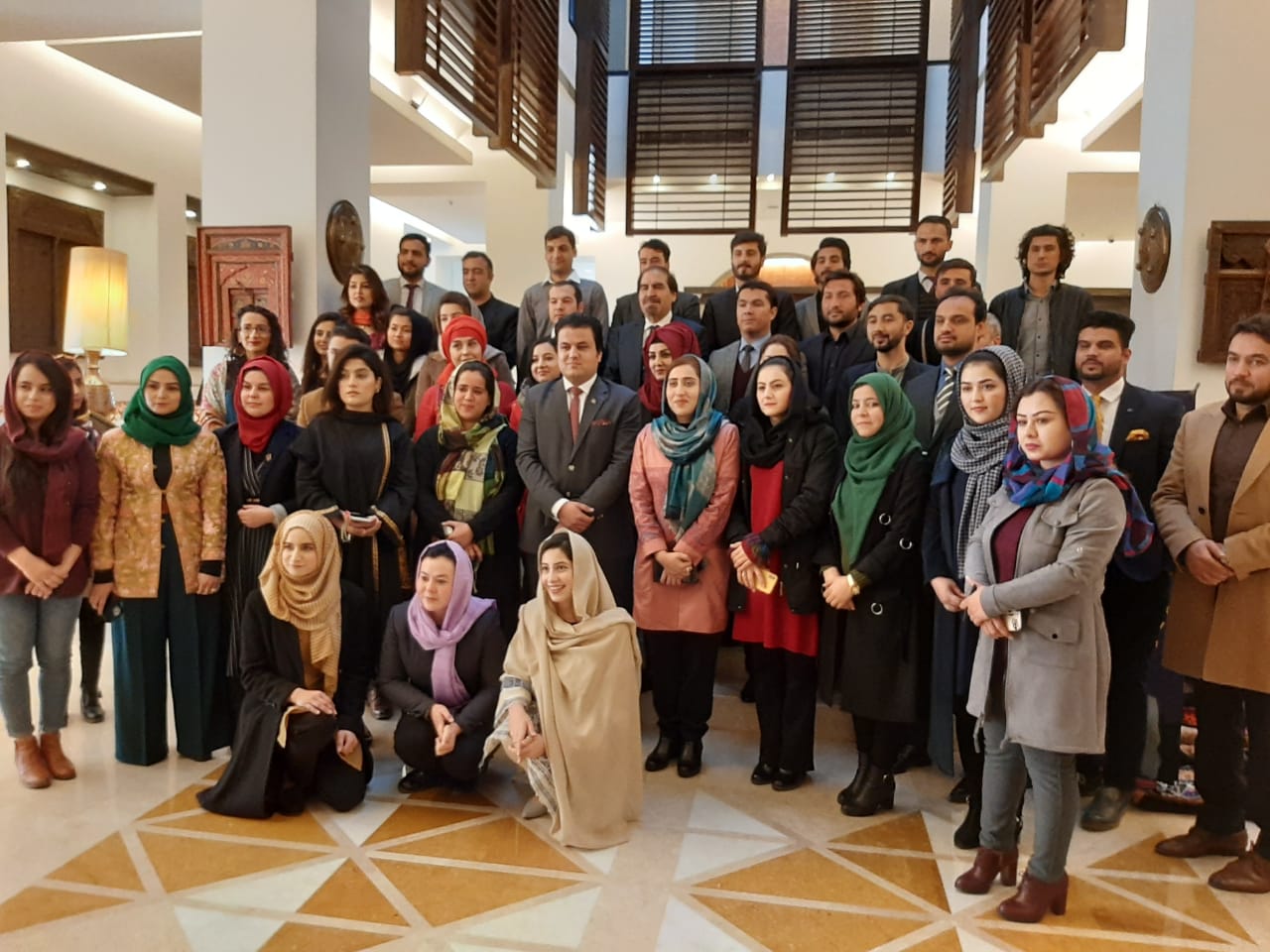
At the end of the inaugural session, the youth delegates took a group photo with the chief guest and the keynote speaker, after which the first session Ms. Bokhari invited the six speakers- three from Afghanistan and three from Pakistan.
As chair opening the third session, Mr. Shoaib Rahimi stated that, due to their geographical proximity, Pakistan and Afghanistan share many social and cultural commonalities, particularly since the borders were removed in the 1980s’ Afghan War when millions of refugees travelled to Pakistan. Many of these refugees, he stated, returned after availing education in Pakistan and are serving as teachers in Afghanistan. Nevertheless, as a result of this proximity, there are similar problems in the two countries as well, with regards to gender and education, which were the topics under discussion in this session.
Stressing on the need to mainstream education to ensure peace in both countries, Mr. Danyal Hayat, the first speaker of the session, stated that Pakistan and Afghanistan, being the youngest countries in South Asia, hold huge potential for peace-building. Having been associated with the academic sector in Pakistan for years, he affirmed the need to incorporate critical thinking and constructive responses to conflicts in the curricula of both countries’ academic institutions as well as informal education platforms to create a peace-builder and maker mindset in the youth of the two countries. He stated that, as there are up to 205 higher academic institutes in Pakistan and 130 in Afghanistan, the formal education set-up has a great potential for bringing about this change in the mindsets of the young generation. He concluded his speech hoping that there would be more such exchanges between the youth of both countries so they could come together in constructive activities and development.
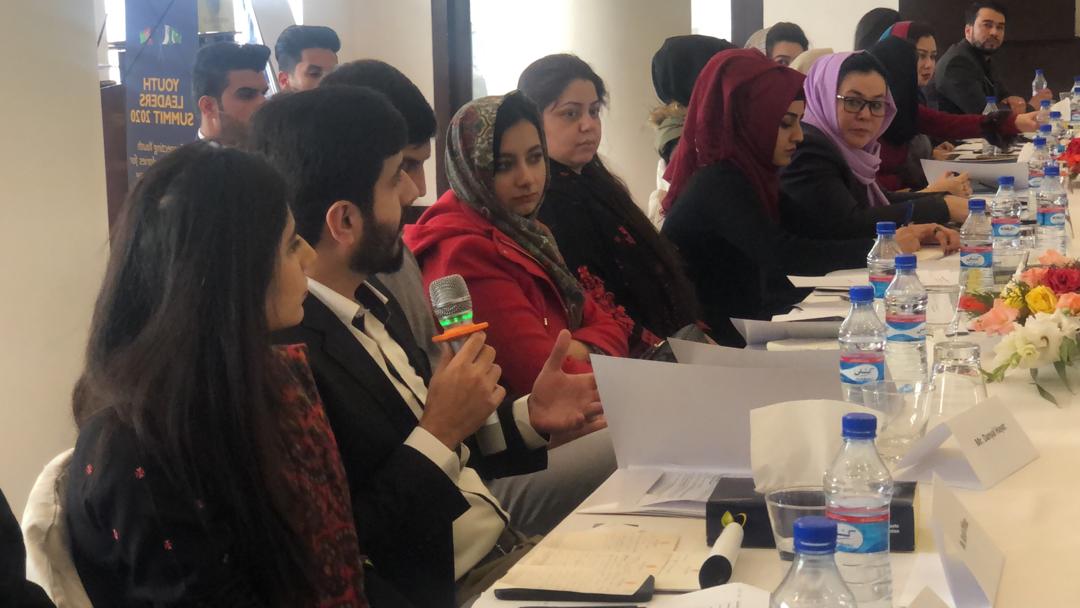
Ms. Shabnam Sarwari, speaker from Afghanistan on the same theme, stated that education is a basic need and a human right. She stated that education and development are closely connected. Education, in any society, can develop a country socially, economically, politically and culturally. Ms. Sarwari, stated that Afghanistan has been deeply compromised by war where the conflict has lasted for more than thirty years. As a result, Afghanistan’s education system remains fragile. Since the 2001 fall of the Taliban, however, rehabilitation efforts have led to substantial progress. For example, prior to 2002, more than 9 million children were not enrolled in schools. Girls were prevented from attending schools under the Taliban regime. However, today, 40% of the students at general schools are females.
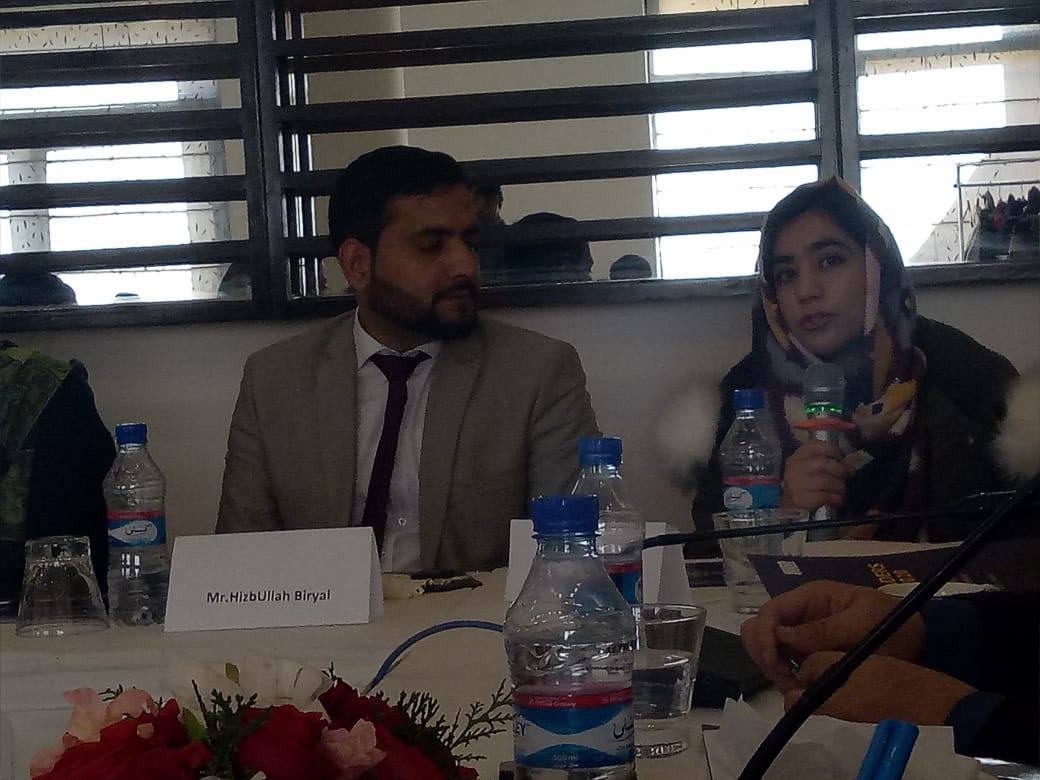
Now the Afghan education system includes primary, secondary, higher and vocational education as well as teacher training and religious education. Ms. Sarwari further stated that education starts informally from one’s home while formal learning is done in institutions. Giving some statistics on education in Afghanistan, she said, there were 15,249 general education government schools where 8.7 million students were enrolled, out of which 8.5 million were girls. 300,000 are enrolled in universities. She further shared that there were 160 private schools established in Afghanistan in the big cities of Afghanistan where 37,180 students are enrolled. Ms. Sarwari went on to say that the recent education quality reforms in Afghanistan seek to increase equitable access to primary and secondary education, particularly for girls, in 17 selected provinces.
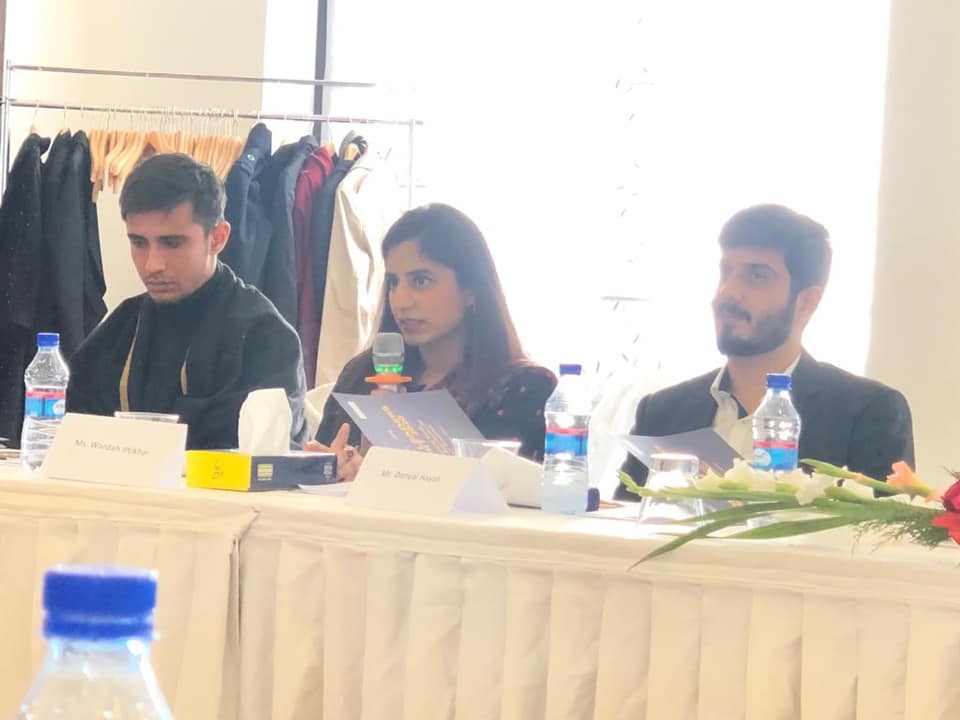
Wardah Iftikhar, speaker from Pakistan, stressed on the need to mainstream gender equality in both countries. She stated that there are three things that are ruling the world today; the Web, weather and women. If the world really wants to do anything, she said, there is no way it should do it without involving the women, she said. Not only do the girls need education in the world today, but there is a need to design the curriculum in schools in a way that it is gender-neutral. Furthermore, she stated that all countries need to include more women in policy-making processes so that their perspectives are also heard.
Lima Anwari, speaker from Afghanistan on the same theme, stated that it is widely believed that women are weaker in every aspect as compared to men. This identity of women is portrayed by those factions in the society who decide the norms and values. Coincidentally, they are predominantly men. They propagate these values through the family structure, politics, education and the media, she said. However, this belief is contrary to the ground realities; for instance, 55.7% of the women contribute to the agricultural sector in Afghanistan as compared to the 29% of men. Hence, these are gender biases that, after being identified, should be removed by those who wish to develop the society.
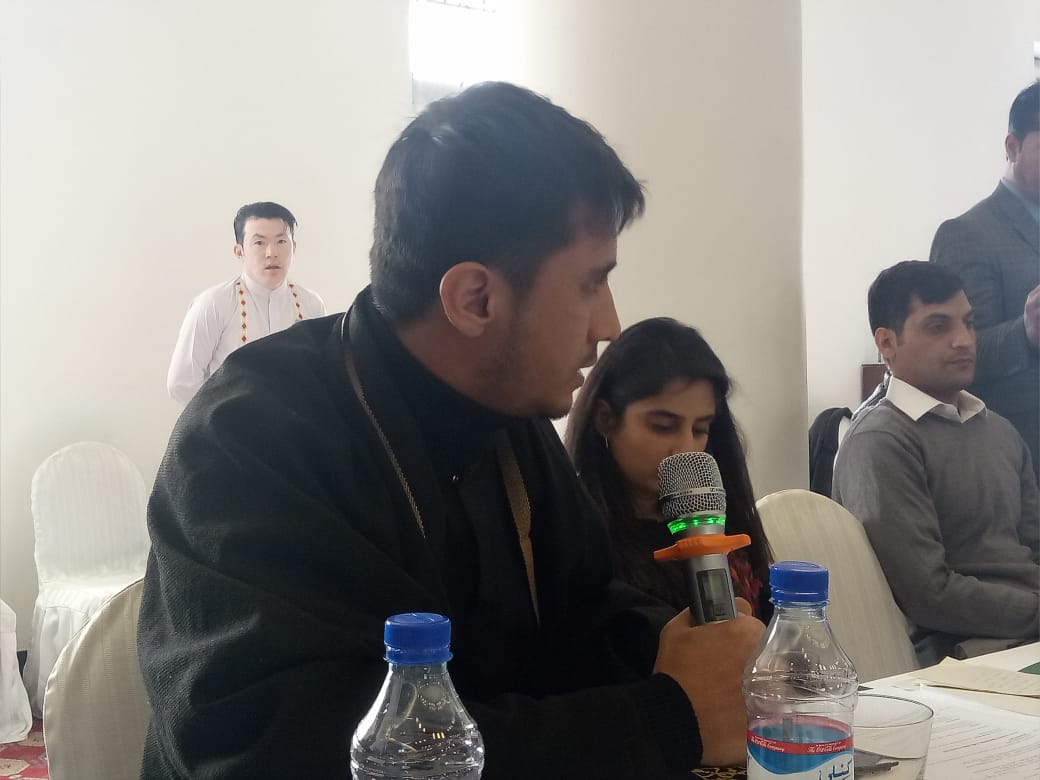
Shahaan Ahmed Shah, another speaker from Pakistan who is a lecturer by profession and a filmmaker by passion, shared a short film on the conditions of refugees in Quetta where he is a native, called “Bezay” meaning “displaced or placeless”. Shahaan described the film as a visual translation of the life Afghan refugees have been living and that they would be capable of many things if they are facilitated more. The film, hence, portrayed the other side of the story where some Afghan refugees have faced difficulties in Quetta, where they are many in number.

Hizbullah Baryal, speaker from Afghanistan on the same theme of Afghan refugees, shared that after the Soviet invasion of Afghanistan, millions of Afghans migrated to neighboring countries, including Pakistan. Many of those are now not willing to come back to Afghanistan due to the political and economic instability in the country. Especially those in Pakistan have now big business and settled lives which they cannot have back in Afghanistan.
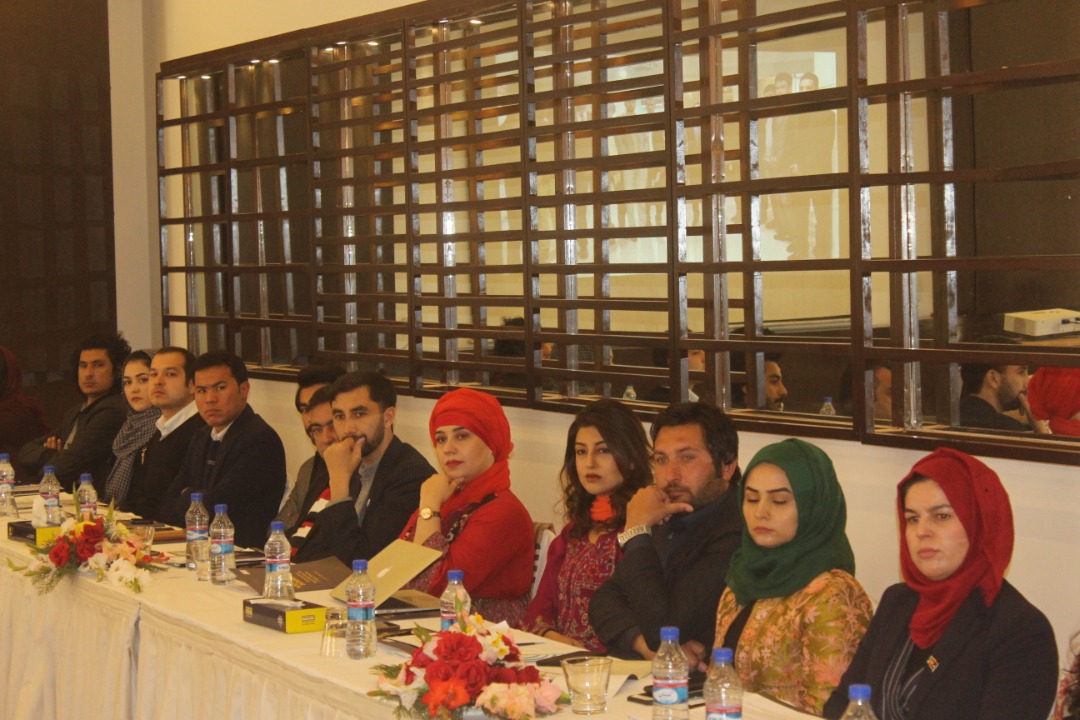
Mr. Shoaib Rahimi then opened the floor for discussion. A Pakistani youth delegate, Ms. Aleena Shah, while making a comment, stressed on the need to mainstream gender equality in every government and non-government institutions of both countries as both genders contribute to the economic development of the society.
On the issue of refugees, Nadir Sultani, an Afghan delegate, stated that he had remained a refugee in Pakistan, in the Attock district of Khyber Pakhtunkhwa, and he could not recall any discrimination that he had faced in Pakistan. Rather, he was treated like a Pakistani citizen. He further stated that in 2019, he also visited Lahore where he saw that a lot of Afghans were running their businesses without any issues. He then suggested that there should be more of such dialogues and exchanges to remove misperceptions that people have due to lack of knowledge.
Madeeha Raza, a Pakistani youth delegate and an independent filmmaker working in Pakistan, stated that the media and filmmakers in both countries often focus on the negative sides and try to avoid showing the positive aspects of a phenomenon. This should be rather balanced in both countries in order to present a better understanding of the reality, as there are always both good and bad sides to a story.
Mr. Shoaib Rahimi then wrapped up the session, highlighting lessons from every speaker’s speech and from the Q&A session.
The second session focused on the theme of “Economic Opportunities, Trade, Media & Creative Arts.” For this, the chairperson also remained Mr. Shoaib Rahimi.
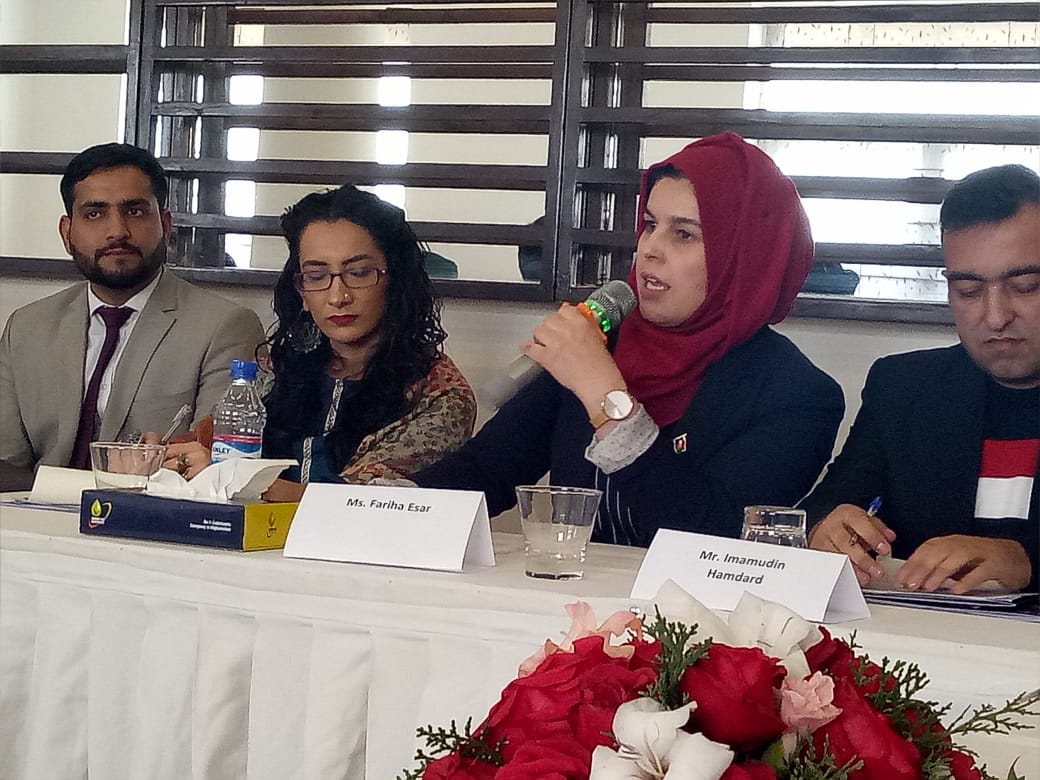
Fariha Easar, Afghan youth delegate and a lawyer and human rights activist, shared a personal story of how she lost her three uncles in the war in Afghanistan 30 years ago, which has still been taking the lives of the people of Afghanistan. She then talked about the identity-based politics that takes places in Afghanistan and how the war has exacerbated the situation culturally, politically and economically. She stated that the intra-state conflict has further killed more Afghans than inter-state conflict. She then raised some questions regarding whether peace can be brought in the Afghan society and if a moderate society can be built by promoting art and culture. She affirmed that art can certainly play a vital role in giving a voice to the voiceless, marginalized and traumatized people of the society.

Pakistani delegate, Ubaid Ullah Khan, who was speaking on the same theme of fusion of art and culture between the two countries, stated that art was one of the strongest pillars of peace. Through the tides of war in history, art, together with literature, poetry, music and dance have carried the value, meaning and message of hope and life; they have preserved life in the times of war and death, he said. For decades, both Pakistan and Afghanistan have witnessed frequent terrorist attacks which have claimed the lives of children, women and men, with the new generation, unfortunately, talking about war, drone attacks, blasts, killings and revenge more than other things. However, art and culture provide a soft image of a society, he said. Art and cultural initiatives not only bring people together and help them make sense of the society that they live in but they also heal their wounds. He then urged the Governments of Afghanistan and Pakistan to invest in arts and culture and, most importantly, in human capital so as to cultivate peaceful societies in both countries.
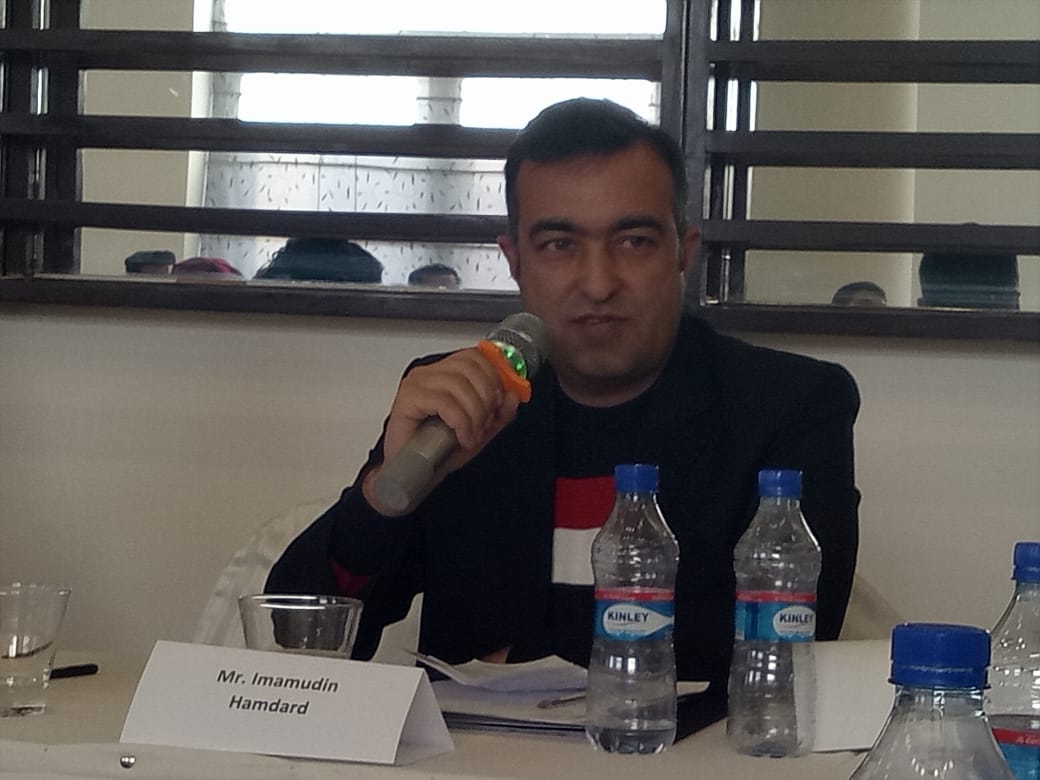
Afghan delegate, Imamuddin Hamdard, who was speaking on the prospects of connecting through economic opportunities and trade, pointed out the common use of the Pakistani currency in Afghanistan and urged for a policy in both countries to enable the Afghans to open Pakistani currency counts in Afghanistan and Afghani currency accounts for Afghans in Pakistan. He suggested that this would smoothen the bilateral trade significantly and will contribute to the economy of the two countries as well. He then also suggested that there should be an on-arrival visa given to Afghan businessmen who wish to travel to Pakistan.
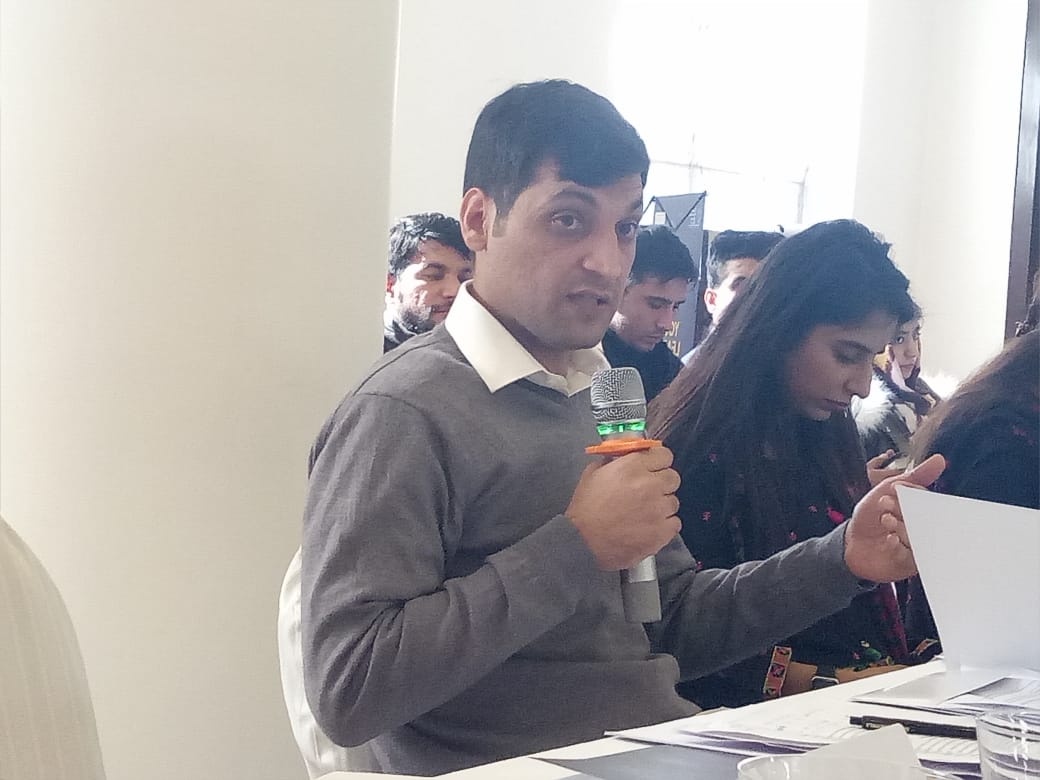
Haroon Afridi, Pakistani delegate speaking on the same theme, at the outset stated that it is the environment of mistrust that creates hurdles in trade. Hence, businessmen on both sides should disassociate trade from politics in order to benefit from the economic potential that both countries hold when they work jointly. He further talked about removing the unnecessary visa restrictions on businessmen on both sides and suggested that Afghanistan should be on the list of countries whose businessmen receive on-arrival visas when they come to Pakistan. He further stated that when nations trade, they avoid wars and conflict and underlined that trade interdependence can make wars and conflicts expensive, thus helping in maintaining peaceful relations with bordering neighbors.

Ahadia Athar, an Afghan delegate, who was speaking on the role of the media in improving Pakistan-Afghanistan relations, stated that the media is playing both a negative and positive role in both countries. The negative role is more prominent, though, than the positive role, due to the severe political tensions. However, media in both countries should come out of the political prejudices and be focused on influencing the public opinion in positive ways and promote friendly relations between the two neighbors.
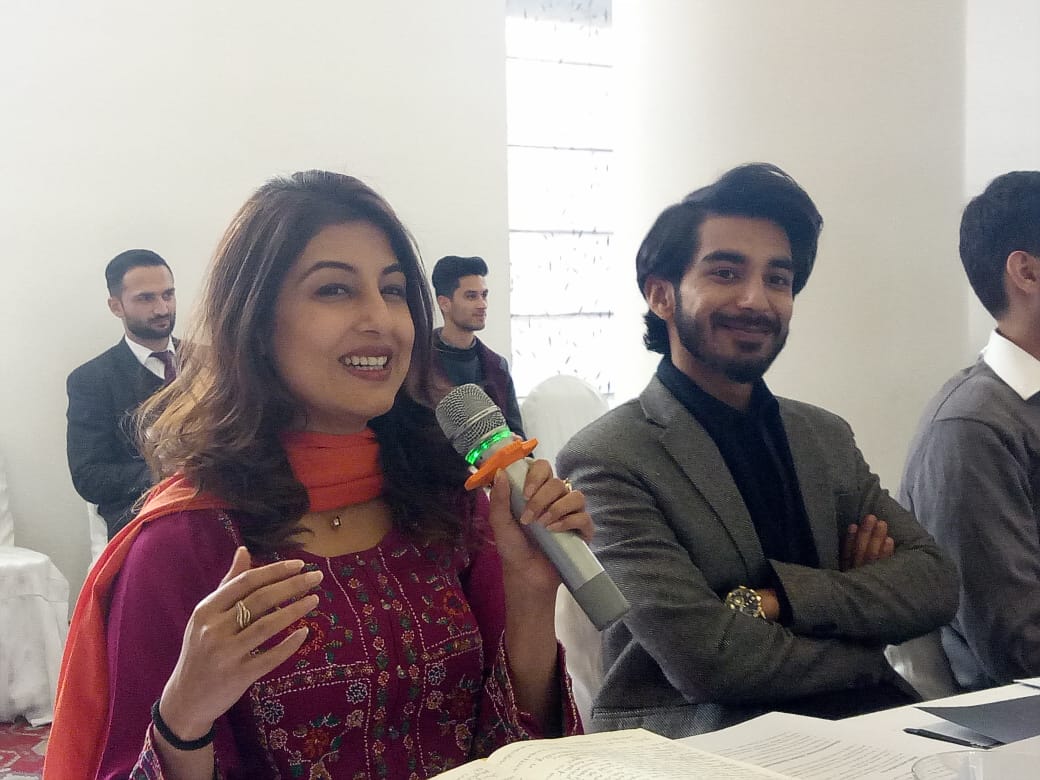
Madeeha Raza, Pakistani delegate speaking on the same theme, stated that the media, being a torch bearer in this digitalized world, must play a responsible role in promoting friendly relations between the two bordering neighbors. She pointed out an article which she said stated that it is the governments that have made it difficult for the media in both countries to cooperate and collaborate. However, she disagreed and stated that it is actually the other way around. She further suggested that the media should identify troubleshooters and address them positively. The mainstream media, she said, can be a mouthpiece of state propaganda. However, thanks to the social media, the narrative is now being redefined and the people in both countries are becoming more and more aware of the reality. If the narrative is negative, she said, it is due to the stereotypes that have led to the bilateral hostility in the state-to-state relations and the people of the two countries. She then proposed that independent filmmakers in both countries can play a crucial role in this regard in rebuilding a positive narrative.
Mr. Shoaib Rahimi wrapped up the second session, giving a summary of every speaker’s speech, and opened the floor for a question and answer session. While responding to a question regarding trade relations between the two countries, Dr. Muhammad Yousuf Khan, Trade Minister at Pakistan Embassy, stated that in 2019, the Government of Pakistan issued 750,000 visas to Afghans where businessmen were given one-year visa with 3 months’ stay. Further, Pakistan has also provided a free vehicle transportation system from Pakistan to Jalalabad where 123,000 containers have come from Karachi to Jalalabad.
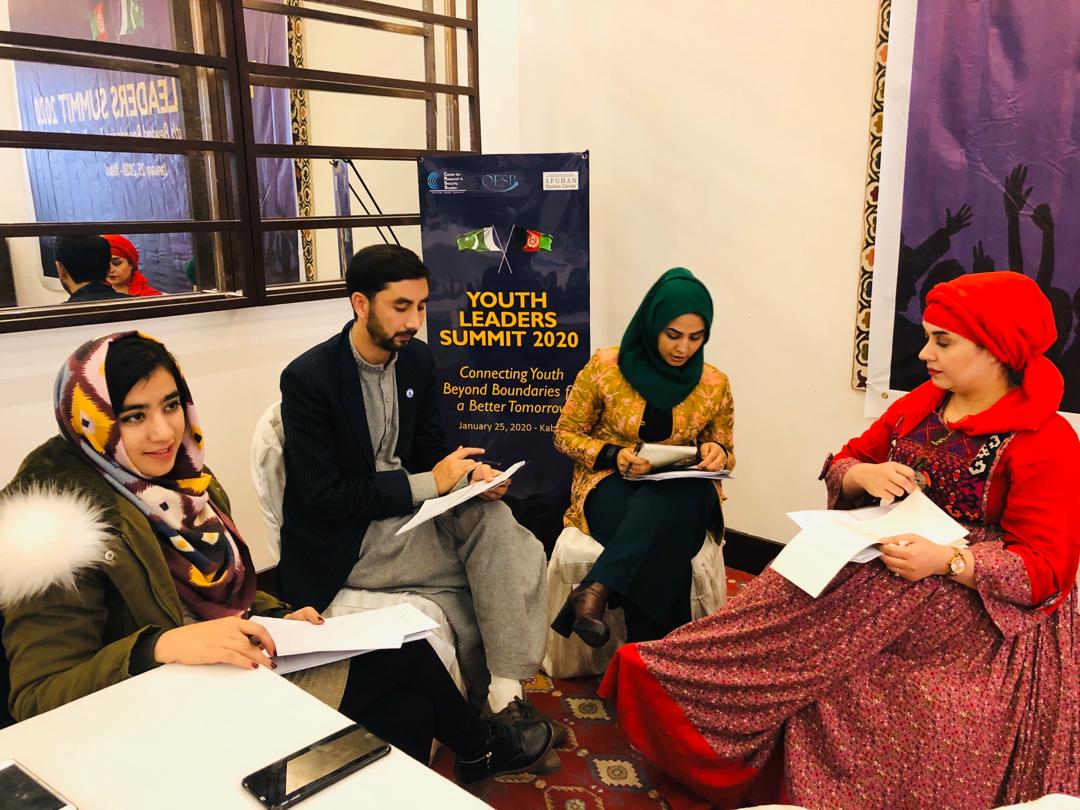
In the brainstorming and drafting of policy recommendations session, Mr. Shoaib Rahimi divided the 35 youth delegates into 4 groups based on the four working areas mentioned in the agenda.
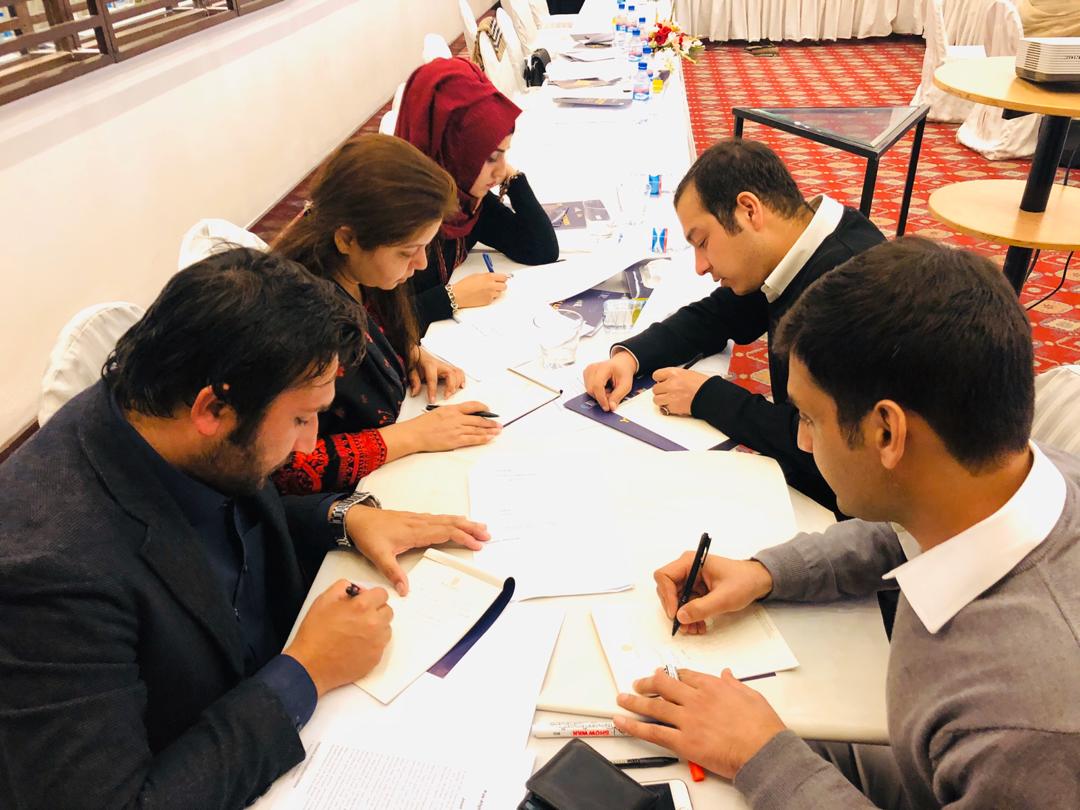
He invited them to discuss the possible measures that both governments can take to resolve the issues that they face either bilaterally internally in those areas.

A group leader from every group was then assigned the job of presenting 5-8 such policy recommendations to the whole house. These recommendations were then further debated with comments and questions from the other groups and compiled in a list. The joint policy recommendations can be viewed in the tab below.
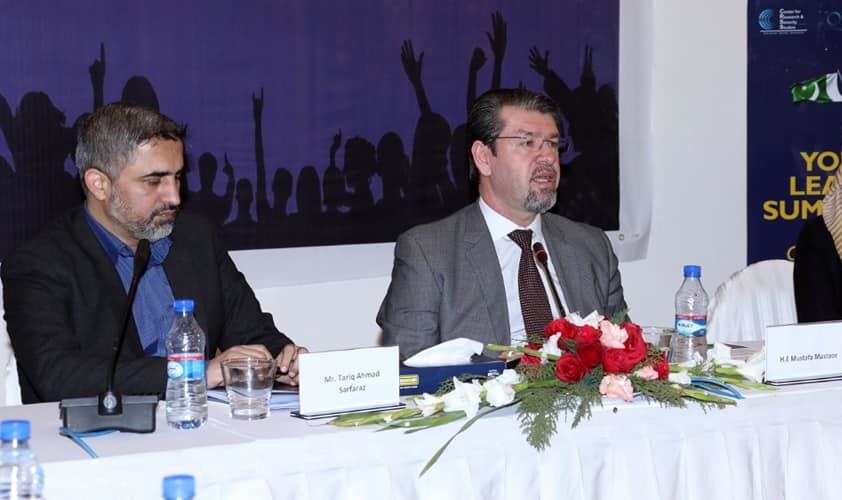
In the closing session, the Minister of Economy of Afghanistan, H.E. Mustafa Mastoor, warmly welcomed the Pakistani youth delegation to Kabul. He expressed his thanks to the organizers of the event, commending their efforts for holding 17 meetings in Kabul and Islamabad under Beyond Boundaries as well. He further mentioned that he had lived in Pakistan for 6 years and had worked in the country as well.
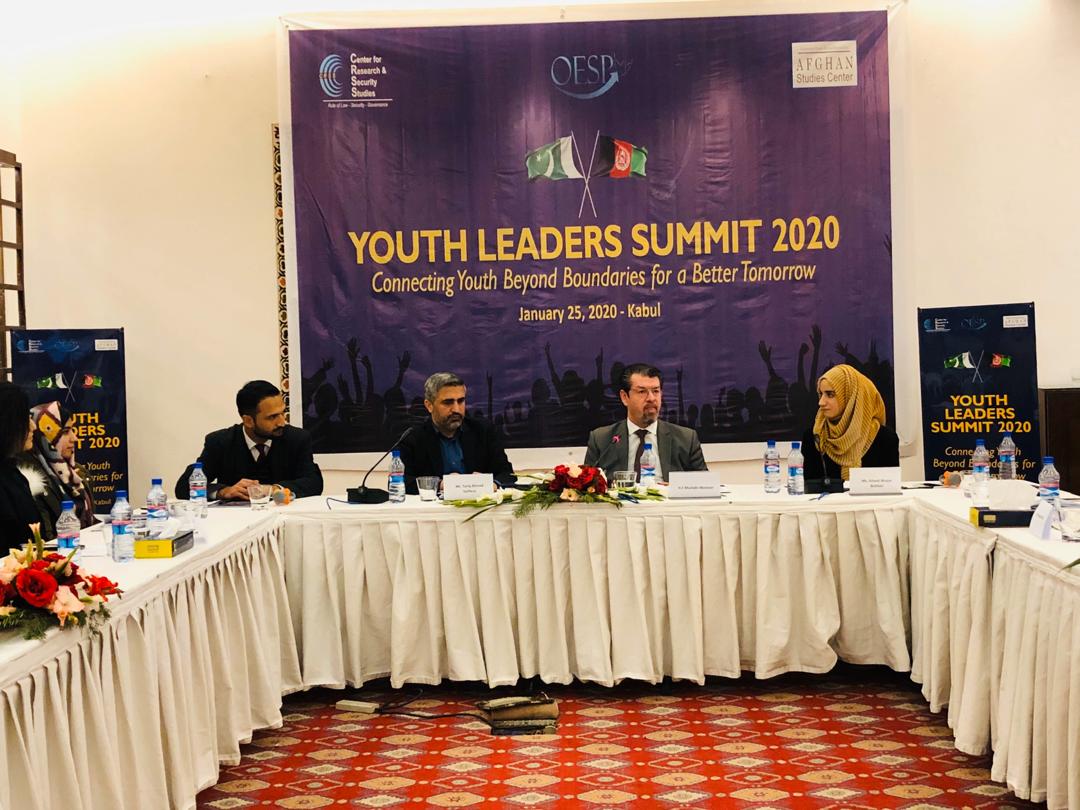
Mr. Mastoor appreciated the platform facilitated by CRSS and OESP, stating that the majority of the population in both countries constituted the youth. In Afghanistan, he stated that 49% of the population was under 15 years old while 70% of the population was under 30. In Pakistan, 63% of the population was under 30 years of age. Mr. Mastoor then shared some interesting facts and figures with the youth delegations. He stated that the percentage of poverty in Afghanistan has been increasing with the passage of time. It is now at 51.1% while other countries have been doing well in fighting poverty in recent years. Currently, there are 2 billion children under the age of 15 worldwide. The population of Pakistan and Afghanistan is growing by 2% and 2.4%, respectively, he said. Both countries are suffering from the shortage of electricity while other countries are doing well in this field too. Can we cope with these issues alone? Unfortunately, there has been a conflict of interests between Pakistan and Afghanistan that is causing these issues. If we could travel this journey together, we would have better result, he said.
“I have asked the Ambassador that let us increase the sport interactions, artists and students’ exchanges, and to make some joint TV serials as Afghans who have lived or have been living in Pakistan are very much fond of them. The joint concerts of Afghan and Pakistani singers and musicians would also definitely pave path for friendly state to state relations,” he said.
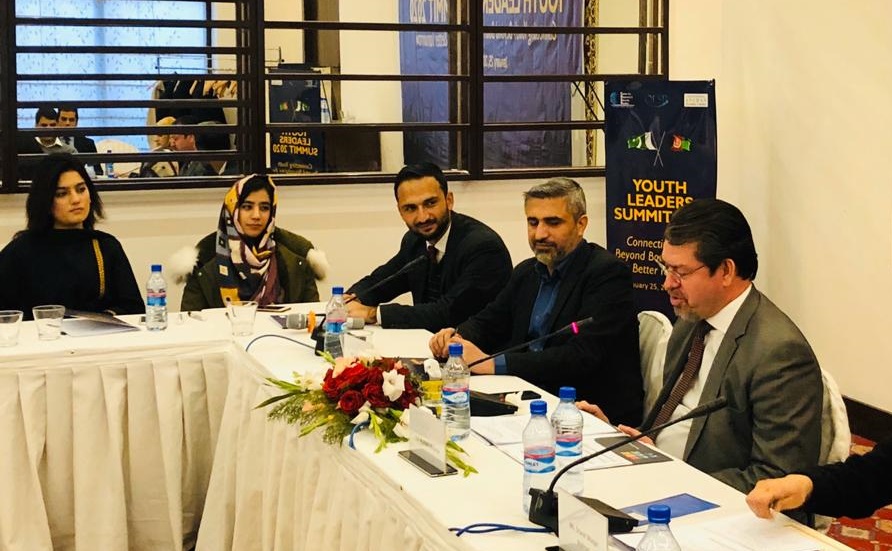
He further said that if TAPI, CASA 1000, and TAP are implemented successfully, it would greatly help in the development of this region. However, they cannot be implemented without an end to this war that has been continuing for almost 42 years. Peace can be brought if we work together, he said. We are spending 1/3rd of our budget on war, but we are optimistic for a peaceful tomorrow, he hoped. Unfortunately, our relations have worsened in the last five years; our imports from Pakistan have considerably dropped. However, I am optimistic for a better tomorrow and the role the youth should play in making the future better, he concluded.
The joint policy recommendations were also shared with Mr. Mastoor. Thereafter, the Minister distributed certificates of appreciation to all participants, followed by a group picture.

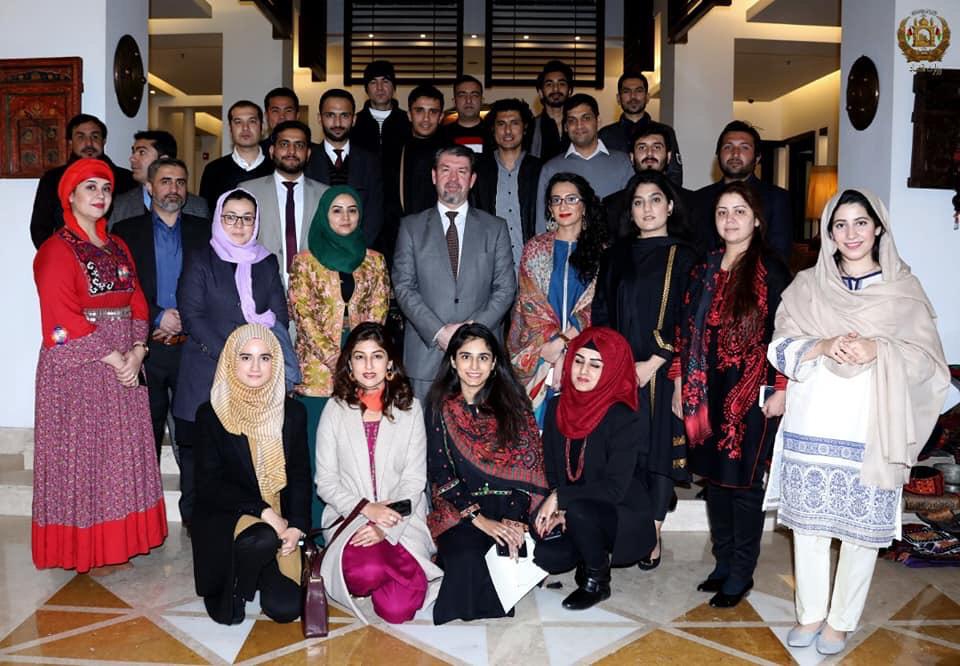
As part of the youth leaders’ visit, the Pakistani youth delegation was also taken to historical places in Afghanistan, namely, Chal Sutoon Palace, Paghman and the National Museum of Afghanistan.
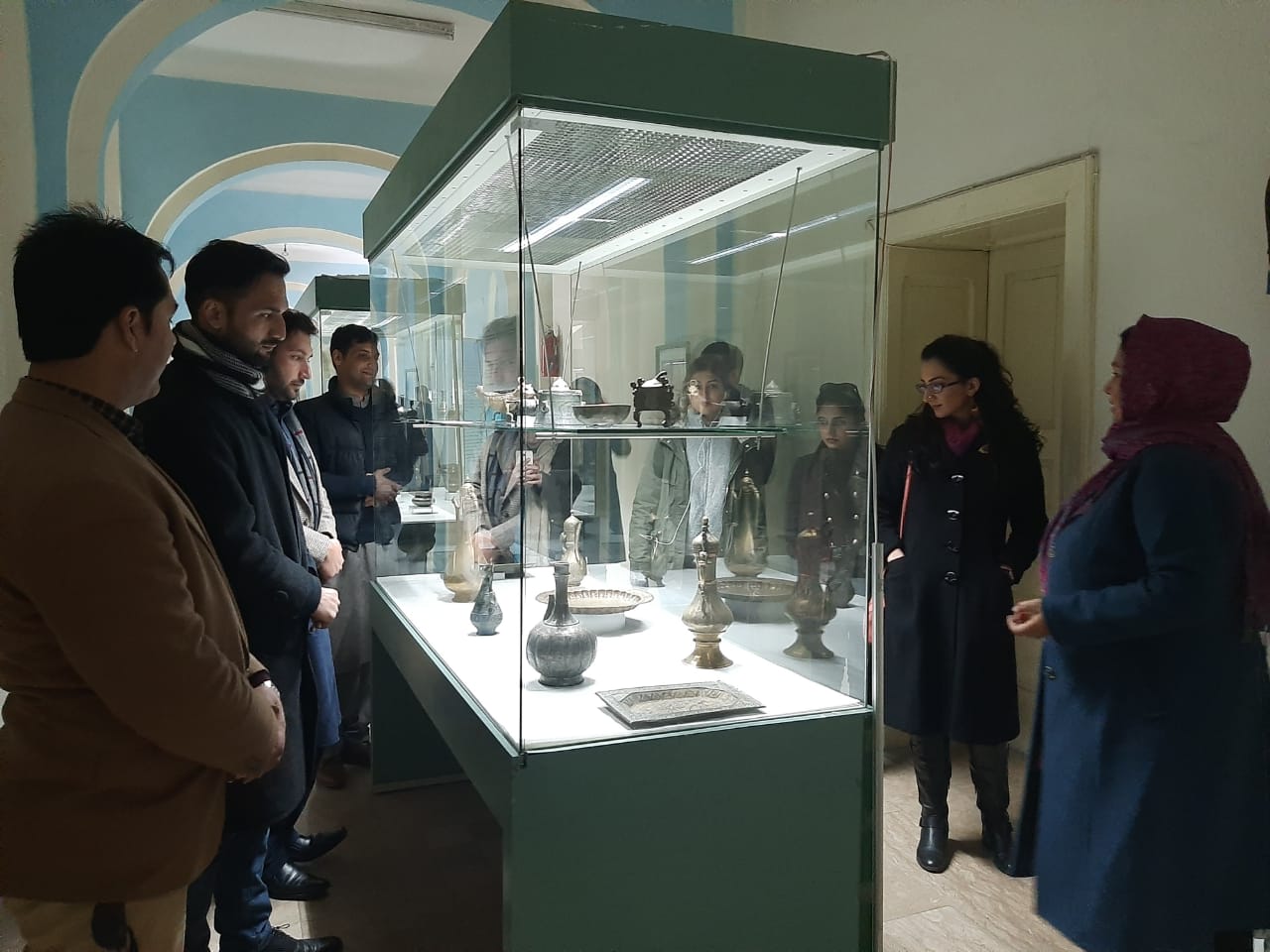
At the National Museum, the delegation held a discussion with the Director of the National Museum, Mr. Mohammad Fahim Rahimi exploring possible avenues for cultural cooperation and collaboration between the museums of Pakistan and Afghanistan. The delegation also invited the curator to visit the Taxila Museum which also holds the artifacts of ancient civilizations in Pakistan. The curator of the museum, allso gave a detailed tour of the museum to the delegates.
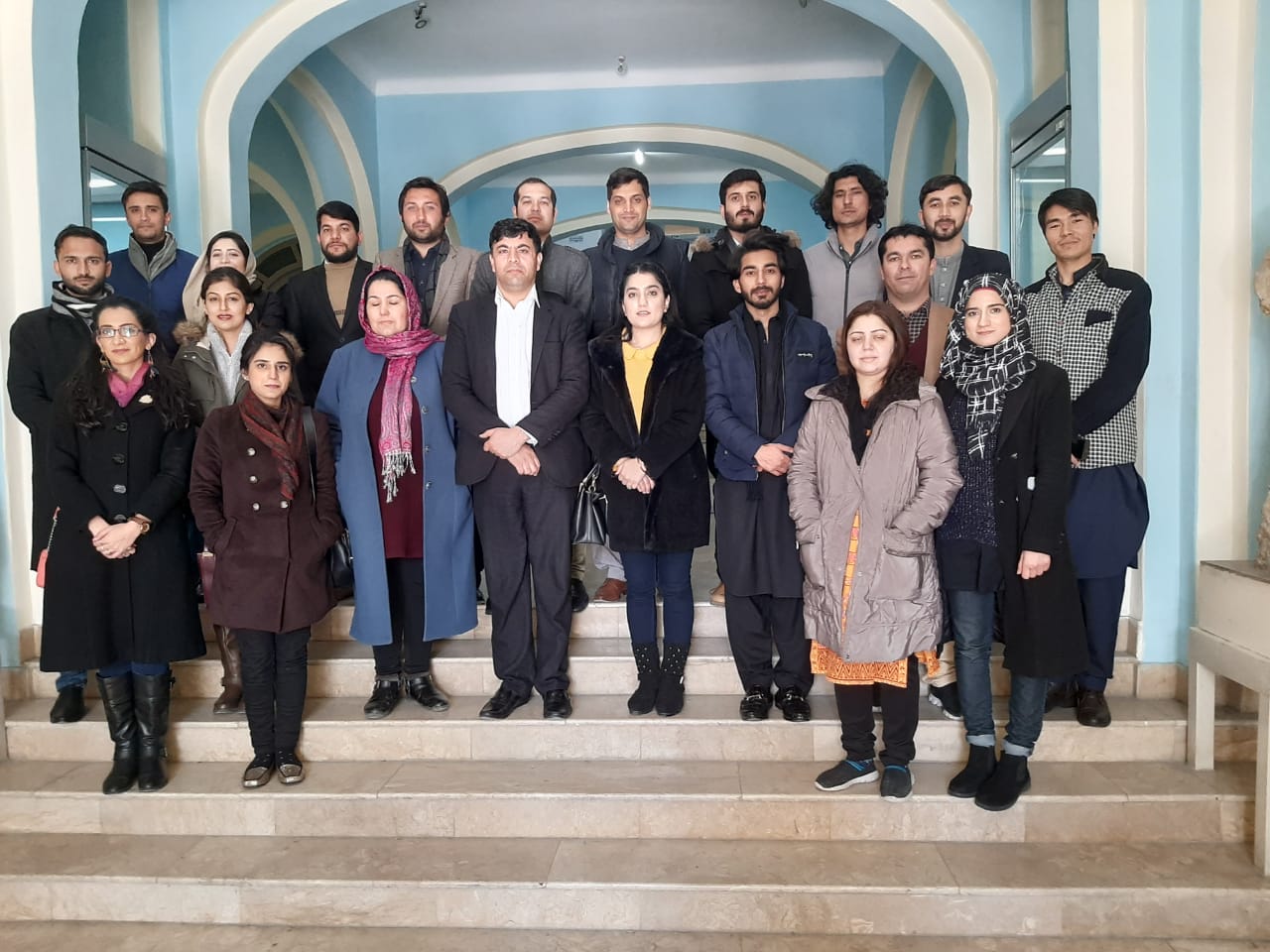
Earlier on the first day of their visit, on January 24, 2020, the Pakistani youth delegates met with many Afghan young entrepreneurs, social activists, and development professionals over a welcome dinner hosted by CRSS & OESP.
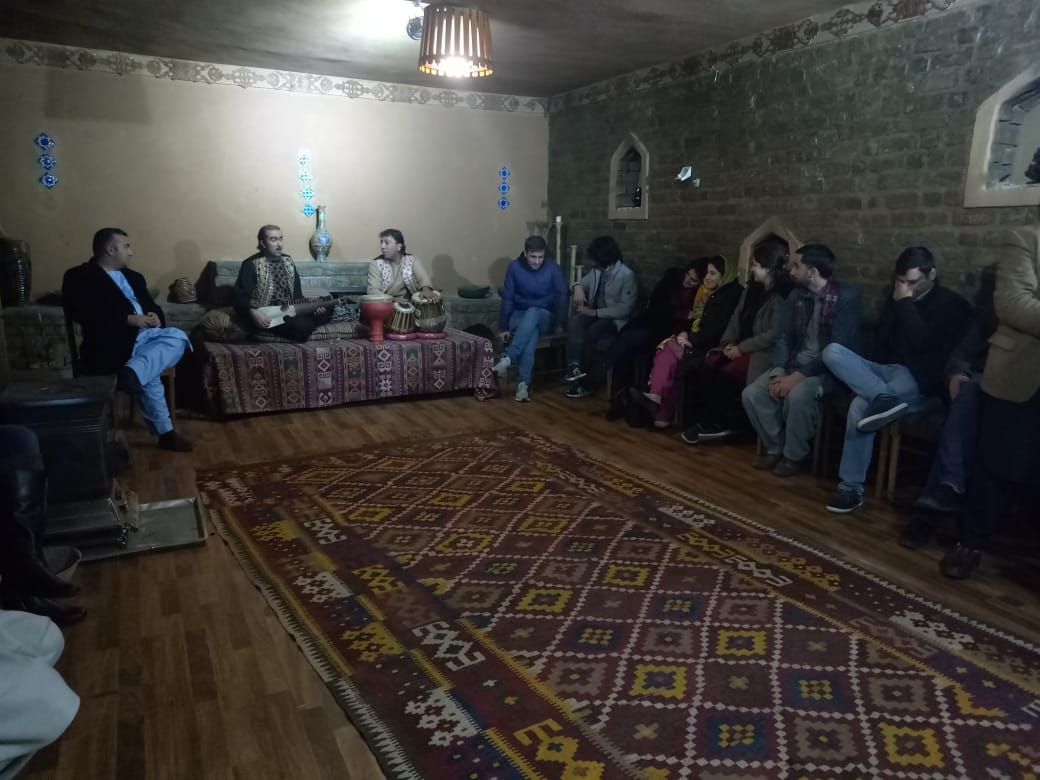
On the last day of the visit, two youth delegates also appeared in the Sobho Zindagi Morning Show on Ariana TV channel in Kabul where they shared the message of peace and invited the Afghan youth to work along Pakistani youth for peace and development in the region.
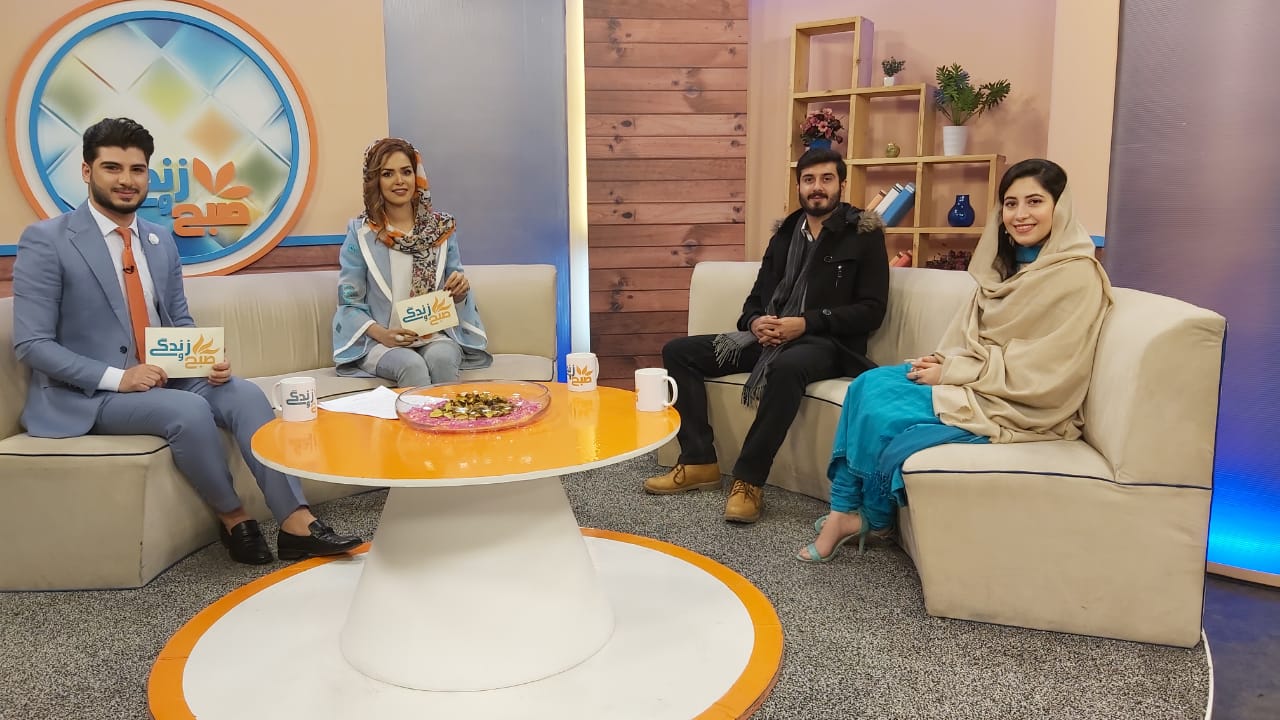
Throughout these three days, including during the summit sessions, the interaction between the young leaders from both sides was extremely fruitful, positive, constructive and welcoming. Many Afghans showed a lot of interest in visiting Pakistan as well and hoped that there would be another youth summit in Pakistan. The filmmakers and art historians in the group made plans to collaborate in making joint short documentaries and song videos promoting the message of peace and friendly relations between the two. They hoped CRSS and OESP would continue to give this platform to the youth in both countries in the future so they can spread this message of peace, and also hoped that it would expand into a bigger platform where maximum people can be reached out to for a greater impact.




